Tetanus is a very dangerous infectious-toxic disease caused by bacteria from the environment entering the body through wounds and secreting toxins that cause systemic poisoning.
Clinical manifestations are muscle spasms and convulsions. The disease can be prevented by vaccination, but when infected, it progresses very severely with many complications.
Recently, the Tropical Disease Center - Bach Mai Hospital has continuously received tetanus cases with severe symptoms requiring intensive resuscitation treatment methods, even blood filtration, extremely expensive treatment costs and high risk of death.
Patient NVG (male, 49 years old), previously healthy, working as a carpenter in Bac Ninh, went to Bach Mai Hospital with initial symptoms of jaw stiffness, difficulty opening the mouth, difficulty breathing, and difficulty walking.
After examination, doctors concluded that the patient was suspected of tetanus infection and was hospitalized for treatment at the Tropical Disease Center with an initial diagnosis of generalized tetanus - respiratory failure.
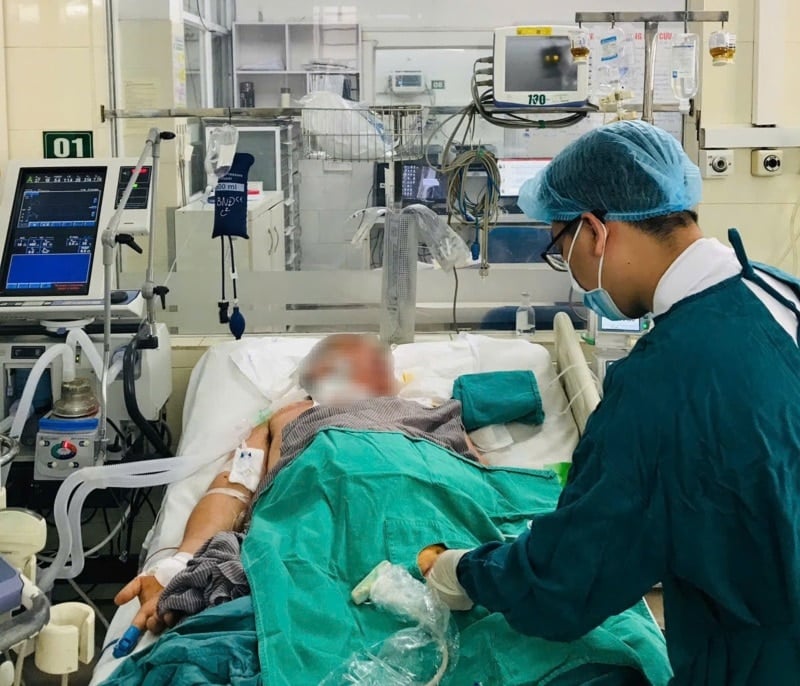 |
Tetanus patients are being treated at the Tropical Disease Center, Bach Mai Hospital. Photo: Bach Mai Hospital |
That night, the patient had difficulty breathing and had to have an emergency tracheostomy, high doses of anticonvulsants, vaccinations and tetanus serum to neutralize the toxin, and a ventilator to support breathing.
The patient's medical history revealed that 2 weeks before being admitted to Bach Mai Hospital, the patient was cut by a wood planer through the first joint of the third finger of his left hand. The patient did not go to the hospital but treated the wound and applied leaves at home. Due to subjectivity, the patient did not get a tetanus shot after the injury.
Upon admission to the hospital, the wound on the finger was black and necrotic, suspected of containing a foreign object. The patient was treated with debridement and wound cleaning. However, after 2 weeks of treatment, the disease gradually progressed and required intensive resuscitation with mechanical ventilation, blood filtration, high-dose antibiotics to fight infection, vasopressors, micronutrient supplementation, nutritional infusion, and after many multidisciplinary consultations, the patient was still in critical condition: septic shock, respiratory failure, acute liver and kidney failure, acute rhabdomyolysis, anuria, high risk of death.
Patient NVM (male, 56 years old), a farmer in Hai Duong, was hospitalized at the Center for Tropical Diseases with jaw stiffness, difficulty eating, difficulty swallowing, unable to open mouth, increased muscle tone throughout the body, headache, and fatigue.
A week before, the patient had an abscess on his big toe but he was careless and waded in dirty water during the recent storm, so bacteria entered his body through the wound. The patient had never been vaccinated against tetanus.
After more than a week of active monitoring and treatment, the patient's condition has improved. Although he does not need a tracheostomy or mechanical ventilation, he still has a high risk of death due to the possibility of complications such as respiratory failure and secondary infections due to many underlying diseases.
Patient LVT (male, 56 years old), a farmer in Dan Phuong, Hanoi, was admitted to the Center for Tropical Diseases with jaw stiffness, difficulty opening the mouth, choking, difficulty breathing, stiff limbs, and increased muscle tone throughout the body. The patient was admitted with a diagnosis of generalized tetanus.
Three weeks earlier, the patient had been working barefoot in the fields and stepped on a nail and bled. He then took antibiotics and had not received a tetanus shot.
Upon admission to the hospital, the patient was injected with tetanus vaccine and antiserum, the wound was cleaned with hydrogen peroxide, and foreign objects were removed. After 3 days of active treatment, the patient showed signs of improvement.
According to Associate Professor, Dr. Do Duy Cuong - Director of the Center for Tropical Diseases, Bach Mai Hospital, tetanus is a dangerous acute infectious disease caused by Clostridium tetani bacteria living in dirty soil entering the body. In anaerobic conditions (the wound is closed), the bacteria will produce exotoxins.
This powerful toxin enters the bloodstream and travels to neuromuscular junctions, where it increases the level of excitatory transmission, causing muscle spasms and convulsions.
Clinical symptoms are that after about 1-2 weeks of injury, the patient will have early symptoms of jaw stiffness, difficulty chewing, difficulty swallowing, then muscle stiffness, increased muscle tone throughout the body, severe cases will have symptoms of convulsions, the whole body is bent, accompanied by difficulty breathing, respiratory failure, and autonomic nervous system disorders.
If not treated promptly with active resuscitation measures, it will quickly lead to death or many complications in the cardiovascular, respiratory, urinary, digestive, and skeletal systems.
To treat tetanus, patients need to be treated urgently at medical facilities with intensive care centers. Patients need to be closely monitored for respiratory status and given sedatives to control muscle spasms. Wounds need to be treated quickly, antisera neutralize toxins, minimize complications, use broad-spectrum antibiotics to prevent secondary infections, support mechanical ventilation, nutritional care, etc.
To prevent tetanus, vaccination is necessary, especially for high-risk groups. Children should be vaccinated against tetanus from 2 months of age, and pregnant women should be vaccinated against tetanus at the right time during pregnancy.
When injured or scratched, immediately disinfect the wound properly, avoid covering the wound, and go to a medical facility to get a tetanus antiserum injection and treat the wound by cutting and filtering necrotic tissue, crushing, removing foreign objects, and washing with hydrogen peroxide.
When working or living, it is necessary to avoid contact with mud, contaminated objects. If contact is necessary, protective measures such as wearing boots, gloves, etc. are required. At farms and construction sites, it is necessary to have disinfectants for first aid such as soap, hand sanitizer, medical alcohol, and regularly clean the environment and barns. At medical facilities, medical instruments must be sterilized according to regulations to avoid neonatal umbilical tetanus and obstetric tetanus.
Source: https://baodautu.vn/khong-chu-quan-coi-thuong-vet-thuong-ngoai-da-d226810.html


![[Photo] Looking back at the impressive moments of the Vietnamese rescue team in Myanmar](https://vstatic.vietnam.vn/vietnam/resource/IMAGE/2025/4/11/5623ca902a934e19b604c718265249d0)



![[Photo] "Beauties" participate in the parade rehearsal at Bien Hoa airport](https://vstatic.vietnam.vn/vietnam/resource/IMAGE/2025/4/11/155502af3384431e918de0e2e585d13a)





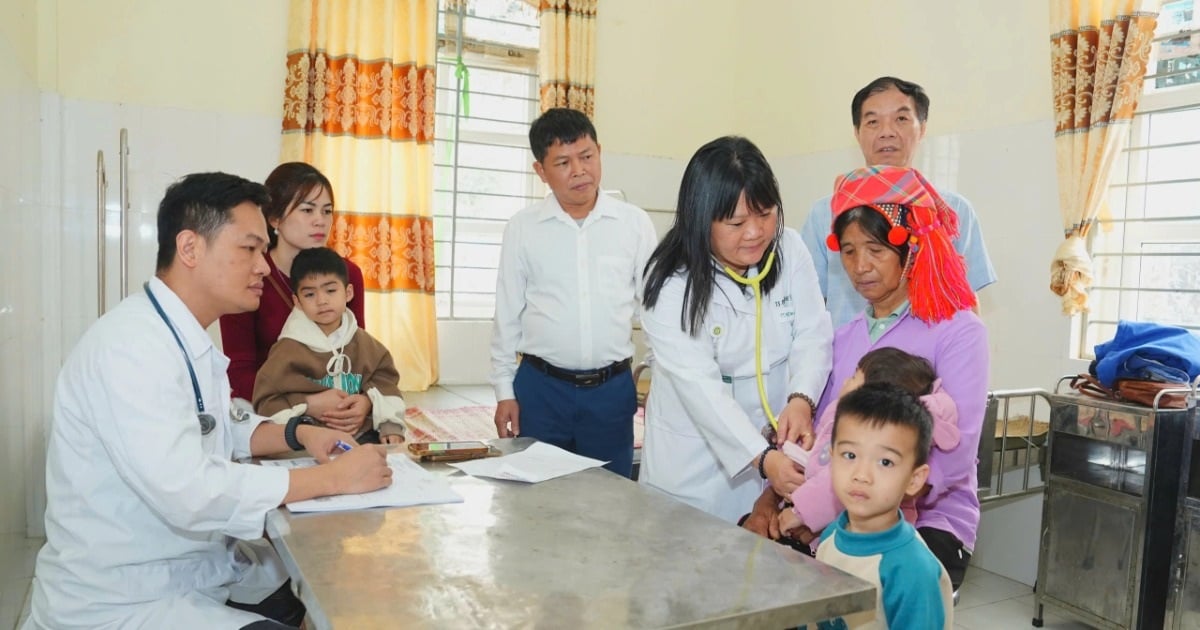



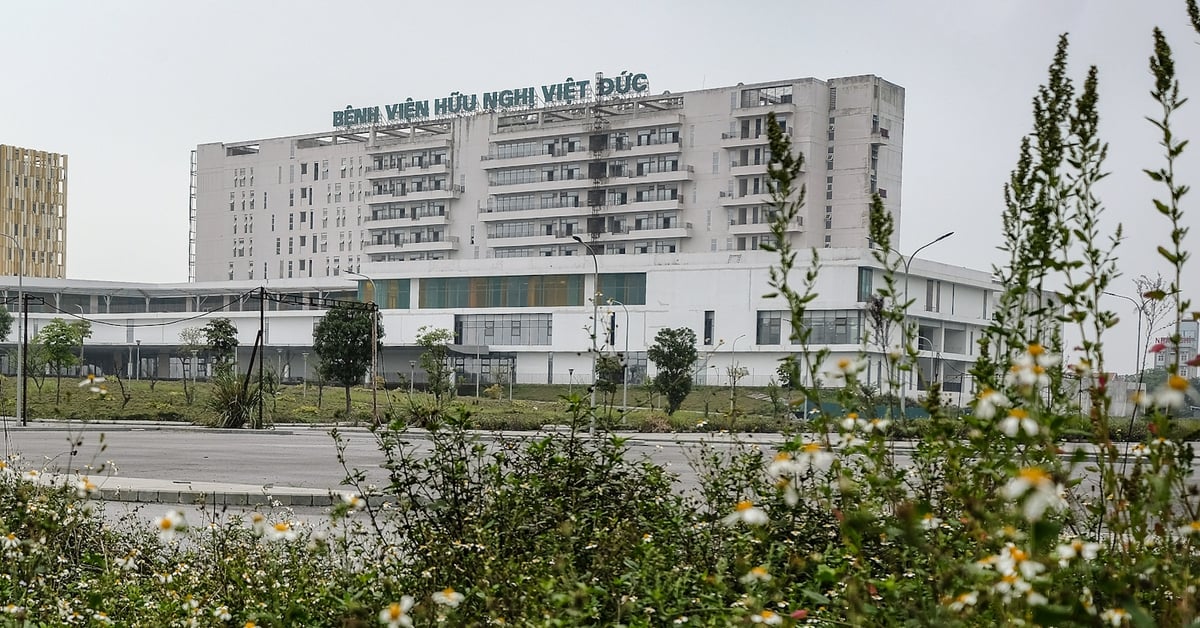






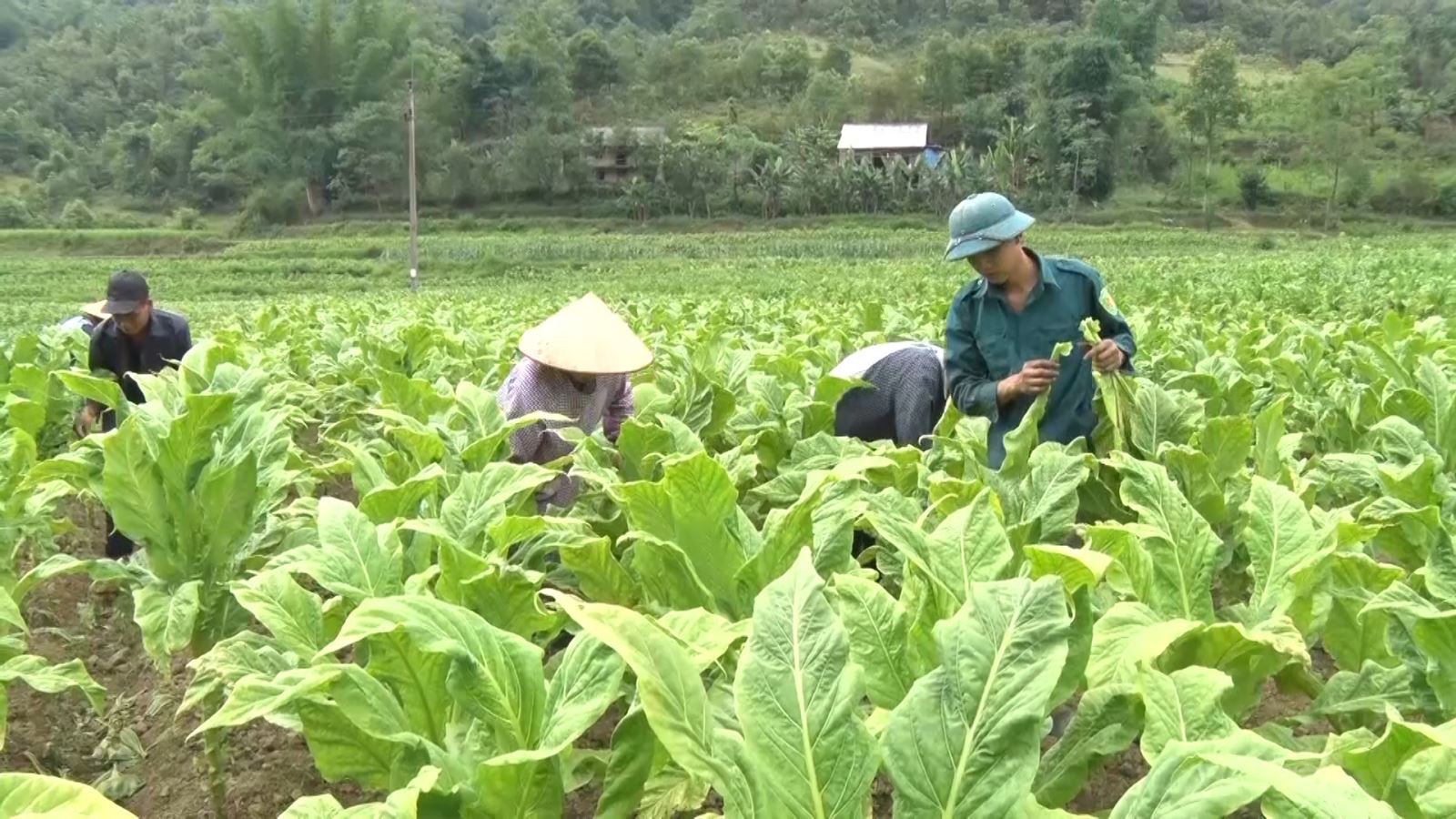
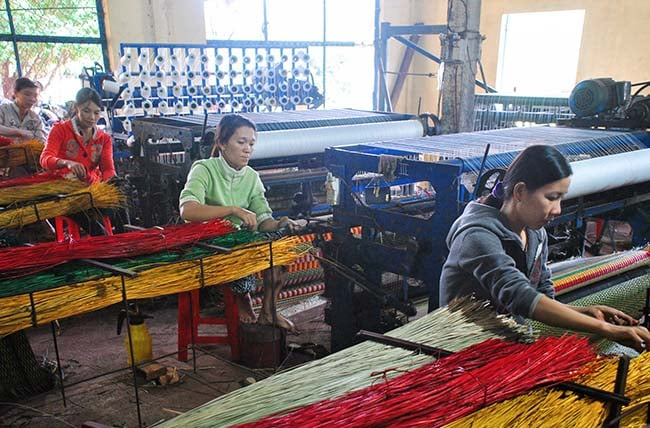



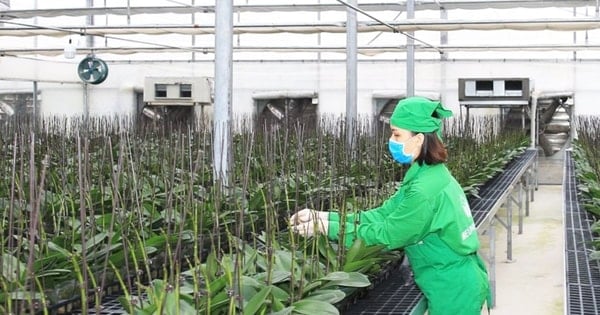






![[Photo] Summary of parade practice in preparation for the April 30th celebration](https://vstatic.vietnam.vn/vietnam/resource/IMAGE/2025/4/11/78cfee0f2cc045b387ff1a4362b5950f)




















































Comment (0)